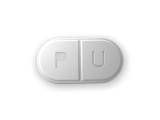What erectile dysfunction
Erectile Dysfunction (ED) is a medical condition which affects the ability of men to achieve or maintain an erection during sexual activity. It is estimated that about 30 million men in the United States suffer from ED.
The causes of ED can be both physical and psychological. Physical causes include cardiovascular diseases, diabetes, obesity, high blood pressure, and hormonal imbalances. Psychological causes include stress, anxiety, depression, and relationship issues.
The symptoms of ED include difficulty achieving or maintaining an erection, reduced sexual desire, and premature ejaculation. If you experience these symptoms, it is important to seek medical advice, as ED can be a sign of other underlying health issues.
Treatment options for ED include medication, such as PDE5 inhibitors (Viagra, Cialis, Levitra), vacuum pumps, penile injections, and penile implants. Counseling and lifestyle changes, such as exercise, quitting smoking, and reducing alcohol consumption, can also be effective.
If you or someone you know is experiencing ED, it is important to seek help from a healthcare professional. With proper diagnosis and treatment, ED can often be successfully managed, improving sexual function and overall quality of life.
The Basics
What is Erectile Dysfunction?
Erectile Dysfunction (ED) is a condition where a man is unable to get or maintain an erection during sexual activity. It is a common problem that affects millions of men worldwide.
Causes of Erectile Dysfunction
- Physical factors such as diabetes, high blood pressure, cholesterol, obesity, heart disease, and prostate surgery.
- Psychological factors such as stress, anxiety, and depression.
- Lifestyle factors such as smoking, alcohol abuse, and drug use.
Symptoms of Erectile Dysfunction
The most common symptoms of ED include difficulty getting an erection, difficulty maintaining an erection, and reduced sexual desire. If you experience any of these symptoms, it is important to talk to your doctor.
Treatment for Erectile Dysfunction
Treatment for ED depends on the underlying cause. It may include lifestyle changes, medication, or surgery. Your doctor can prescribe the right treatment for you based on your individual needs.
What Causes Erectile Dysfunction?
Physical Causes:
Erectile dysfunction can be caused by various physical factors such as diabetes, high blood pressure, heart disease, neurological disorders, hormonal imbalances, and side effects from medication. These conditions can affect the blood flow to the penis and subsequently affect erections.
Furthermore, lifestyle factors such as smoking, alcohol abuse, obesity, and lack of exercise can also lead to erectile dysfunction.
Psychological Causes:
Psychological factors such as anxiety, depression, stress, and relationship issues can play a role in erectile dysfunction. These conditions can affect a man's mental state and subsequently affect his ability to achieve and maintain an erection.
Combination of Physical and Psychological Causes:
In some cases, erectile dysfunction can be caused by a combination of physical and psychological factors. For example, a man with diabetes may experience anxiety related to his condition, which can then lead to erectile dysfunction.
Overall, it is important to discuss any symptoms of erectile dysfunction with a healthcare provider to determine the underlying cause and appropriate treatment options.
Common Symptoms
Difficulty getting or maintaining an erection
One of the most common symptoms of erectile dysfunction (ED) is difficulty getting or maintaining an erection. This can include not being able to get an erection at all, or having an erection that is too soft or not lasting long enough to have sex. This can cause frustration, anxiety, and can lead to relationship problems.
Reduced sex drive
Another symptom of ED can be a reduced sex drive or decreased interest in sex. This can also lead to relationship problems and may cause a lack of intimacy between partners.
Difficulty achieving orgasm
In some cases, men with ED may experience difficulty achieving orgasm. They may still be able to get an erection, but it may not be enough to reach climax.
Other physical symptoms
Other physical symptoms of ED may include fatigue, difficulty sleeping, and decreased muscle mass. These symptoms may be related to underlying health conditions that can contribute to ED, such as diabetes, heart disease, or high blood pressure.
Psychological symptoms
In addition to physical symptoms, ED can also cause emotional and psychological symptoms such as depression, anxiety, and low self-esteem. These symptoms can worsen over time if left untreated.
The Importance of Seeking Treatment
Don't be embarrassed to seek help
If you are experiencing symptoms of erectile dysfunction, it is important to seek medical help as soon as possible. Don't be embarrassed to talk to your doctor or healthcare provider, as they can offer you the right treatment options to improve your sexual health and well-being.
Potential health complications
Ignoring the signs of ED can lead to potential health complications such as depression, anxiety and cardiovascular disease. Erectile dysfunction is often a symptom of an underlying health condition, such as diabetes, hypertension, or high cholesterol levels. Seeking treatment not only improves your sexual health, but also helps to identify and manage any underlying health issues.
The good news is: there are various successful treatment options available for ED, including medications, penis pumps, and lifestyle changes. Your healthcare provider will help to determine the best treatment plan for you based on your needs and medical history. Don't let ED hinder your quality of life – seek treatment and regain your sexual confidence today.
- Don't ignore symptoms of ED
- Talk to your healthcare provider to find the best treatment plan
- Seeking treatment can help to identify and manage underlying health issues
- There are various effective treatment options available, including medications and lifestyle changes
Possible Treatments
Oral Medications
Oral medications like sildenafil (Viagra), tadalafil (Cialis), and vardenafil (Levitra) are commonly prescribed by doctors to treat erectile dysfunction. These medications work by increasing blood flow to the penis, allowing for erections to occur.
Injections
Another treatment option is injecting medication directly into the penis, which can help to increase blood flow and improve erections. This method can be effective but may be uncomfortable or painful for some patients.
Penile Implants
For patients with more severe cases of erectile dysfunction that do not respond to other treatment options, a penile implant may be recommended. This involves surgically inserting a device into the penis that can be inflated to create an erection.
Counseling
In some cases, counseling or therapy may be recommended to treat underlying psychological or emotional issues that could be contributing to erectile dysfunction. This can help patients address any anxiety, stress, or relationship issues that may be affecting their sexual function.
Lifestyle Changes
For patients with milder cases of erectile dysfunction, making certain lifestyle changes can sometimes be effective. Quitting smoking, exercising regularly, and eating a healthy diet can all help to improve blood flow and overall health, which may lead to better sexual function.
Lifestyle Changes to Improve Erectile Dysfunction
1. Exercise Regularly
Regular exercise is essential in improving erectile dysfunction. It helps improve blood flow to all parts of the body, including the penis. Aim to exercise for at least 30 minutes, five times a week. Exercises like running, swimming, and cycling all help to improve blood flow.
2. Reduce Stress
Stress can impact your ability to achieve an erection. Practice relaxation techniques such as deep breathing, yoga, or meditation. Additionally, finding ways to manage stressors in your life can help reduce your overall stress levels.
3. Quit Smoking
Smoking can restrict blood flow to the penis, making it difficult to achieve an erection. Quitting smoking can help improve your overall health, including your sexual health.
4. Eat a Healthy Diet
Eating a healthy diet can help improve erectile dysfunction. Aim to eat plenty of fruits and vegetables, lean proteins, and whole grains. Additionally, avoiding processed foods and limiting your intake of sugary and fatty foods can help improve overall health.
5. Maintain a Healthy Weight
Being overweight can contribute to erectile dysfunction. Aim to maintain a healthy weight by eating a healthy diet and exercising regularly. Additionally, losing weight if you are currently overweight can help improve your sexual health.
6. Limit Alcohol Consumption
Alcohol can impact sexual performance. Limit your alcohol consumption to no more than two drinks per day to help improve your ability to achieve an erection.
7. Speak with your Doctor
If lifestyle changes alone do not improve your erectile dysfunction, speak with your doctor. They may recommend additional treatments to help improve your sexual health.
Follow us on Twitter @Pharmaceuticals #Pharmacy
Subscribe on YouTube @PharmaceuticalsYouTube





Be the first to comment on "What erectile dysfunction"